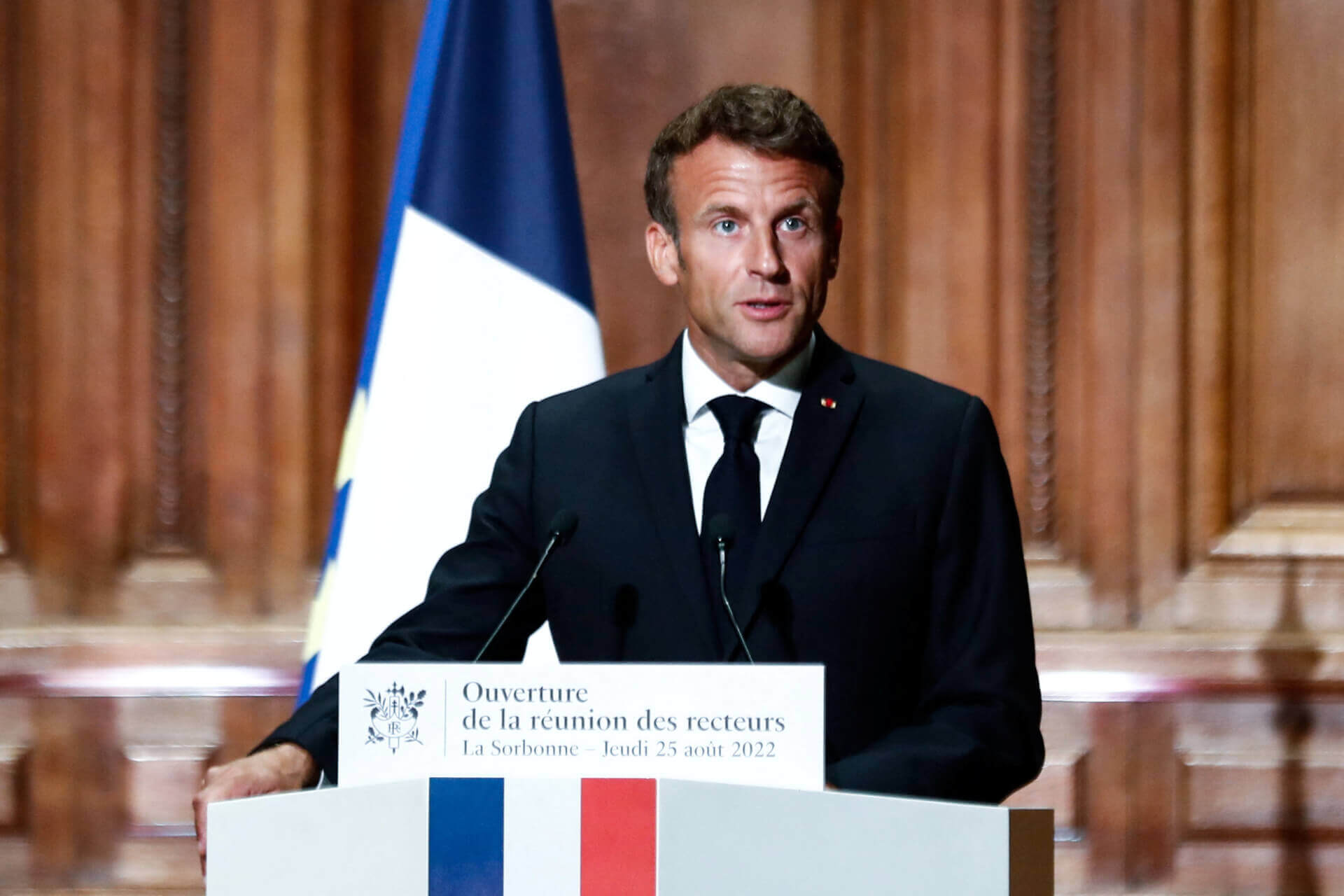A French military official declared on Wednesday that the country’s status as the only nuclear power in the European Union (EU) gives it a “special responsibility” in protecting European security.
In conjunction with President Emmanuel Macron unveiling his “national strategic review” to revamp France’s defences by 2030, the official said the country will recapture its position as a “balancing power by 2030 on the international scene.”
In light of Russia’s repeated threats to use nuclear weapons, particularly as its losses in the Ukraine war continue to mount, France, which dedicates 20% of its defence budget to nuclear weapons, has emerged as a critical bulwark in a region that remains largely dependent on the United States and the North Atlantic Treaty Organization (NATO) at large.
In this regard, the military has refocused its efforts on enhancing its ability to “confront [...] high-intensity inter-state conflict” and counter rivals’ “hybrid strategies” and proposes shifting towards a war economy.
President Macron: “Our vital interests have a European dimension. Our nuclear forces contribute, by their very existence, to the security of France and Europe." https://t.co/J89rEjFXVr
— Pierre Morcos (@morcos_pierre) November 9, 2022
Referring to the Russia-Ukraine war, Macron said that the region’s “new security architecture” comes amid a “fracturing of world order.” He stressed that the Ukraine conflict could “precede broader geopolitical rivalries,” warning, “Europe is not sheltered anymore from missile and drone strikes. And we must integrate this reality.”
He asserted, however, that there is no need to be ‘fatalistic’ and said these threats can be combatted by “moving forward considerably on European defence.”
The president emphasised that France’s security has a “European dimension” and vowed to enhance the bloc’s air defence systems. He said, “Our continent’s air defence can’t be limited to promoting one national industry or be conducted at the expense of European sovereignty.”
To this end, he underscored the importance of the France-Germany defence partnership for European military autonomy. While the two EU members have agreed to jointly develop fighter jets and tanks, progress has been stalled over differences on technical needs and the manner of sharing production. Keeping this in mind, Macron asserted that Europe’s defence is based on “the balance of our partnership” and called for “decisive progress” on the issue.
Macron also called for greater defence cooperation with the United Kingdom. He revealed that the two sides will participate in a bilateral summit in the first quarter of 2023. He said, “I hope that we will actively resume our dialogue on operations, capacities, nuclear and hybrid areas and renew the ambitions of our two countries as friends and allies.”
Although he emphasised on the need for autonomy in European defence strategy, he also vowed to maintain France’s “exemplary” membership in NATO.
In a keynote speech on security policy in Toulon, Macron also confirmed that there would be a France-UK summit, mostly on defence cooperation, in the first quarter of next year. Such summits were once annual events. The last was in Sandhurst in Jan 2018 2/
— Mujtaba Rahman (@Mij_Europe) November 9, 2022
On his nuclear strategy, Macron argued that France must “define and update” its nuclear deterrence strategy. This has generated speculation about a change in France’s nuclear doctrine, which currently only allows the use of nuclear weapons to defend the country’s “vital interests.”
In October, Macron declared that the “fundamental interests of the nation” will not be affected if Ukraine was attacked with a ballistic nuclear weapon, indicating that he would not deploy France’s nuclear weapons in case of a nuclear attack by Russia against Ukraine.
Responding to speculation about a change in this policy, Macron said this week: “Let’s not forget that France indeed can rely on nuclear dissuasion and let’s not sometimes dramatize what is being said.” However, he did not offer any further clarification.
Macron has been previously criticised for taking a soft stand on Russia’s military invasion, as he has continued to hold frequent discussions with President Vladimir Putin since the start of the war.
Nous avons décidé la fin de l'opération Barkhane. C'est une décision prise en concertation avec nos partenaires africains. Notre engagement aux côtés de nos alliés se poursuivra selon les besoins exprimés. La France continuera d'assurer son rôle de pourvoyeur de sécurité.
— Emmanuel Macron (@EmmanuelMacron) November 9, 2022
The French president has presented himself as a negotiator to bring an end to the conflict. In fact, Macron reiterated his call for the two countries to return to the negotiating table during a phone call with Putin on Monday, but said it must be held under conditions chosen by Ukraine.
Despite criticisms about his meek reaction to Putin’s military aggression, the Macron administration has also supported strict sanctions on Russia, including excluding Russian banks from the SWIFT international financial transaction system and targeting oligarchs close to Putin. Yet, despite his frequent calls with Putin, it appears that Macron has little to no influence on his behaviour.
France’s strategic review also recognised the Chinese government as an “adversary” of Western powers and warned that Beijing could weaken the international order and the West’s influence.
The announcement also marked the official end of Operation Barkhane in Mali due to irreconcilable differences with the ruling junta. After halting the operation in 2020, the French army withdrew from Mali in February and the last troops left Gao on 15 August.
France’s failure in the Sahel has been attributed to its growing unpopularity among locals in the region, driven in part by Russia’s social media campaigns to tarnish its image. In this regard, the new strategy recognises “influence” as a key function of the army.
Nevertheless, France will maintain around 5,500 military personnel in Niger, Chad, and Burkina Faso to counter Islamic radicalism. French authorities are also consulting with local governments to enhance troop safety by increasing intelligence-sharing and improving equipment. However, the deployment will no longer be considered an “external operation” like the Barkhane campaign.

